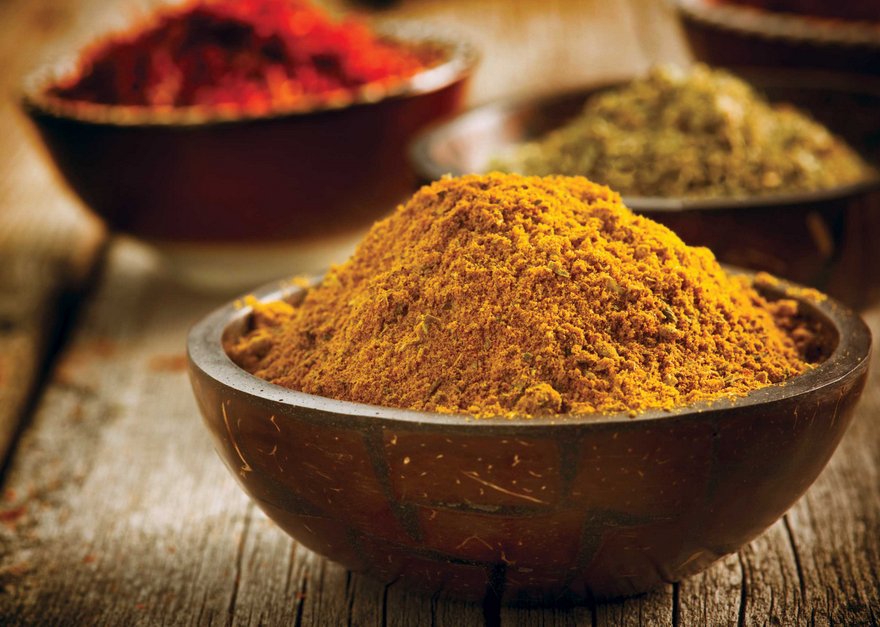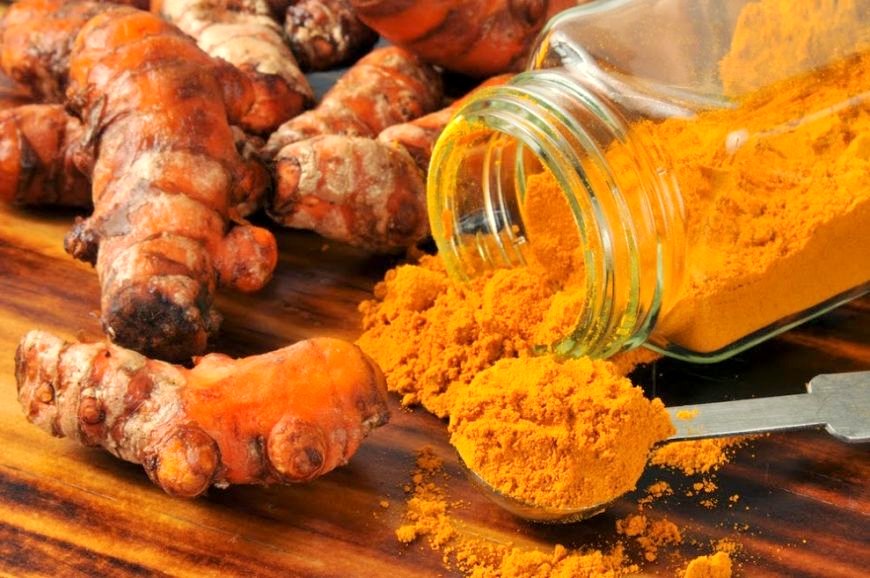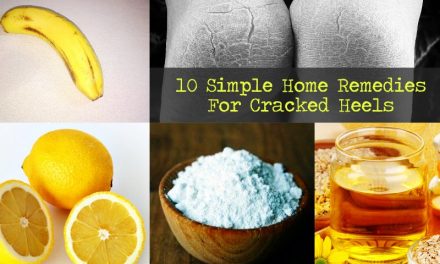Cancer has been one of the most life-threatening diseases in the world. Despite the technological advancements, there hasn’t been any absolute cure for cancer. With several scientists researching on the treatment of cancer, finally there has come a light of hope.
During a recent research it has been observed that an Indian herb is potential of curing cancer. This herb is turmeric (haldi), which is widely used as spice in curries across India.
According to the recent research, a compound found in turmeric could play a very important role in preventing and treating colon cancer, which frequently is caused by lifestyle factors, such as diet.
[wp_ad_camp_1]
As per the reports the researchers found that combination of two plant compounds – curcumin and silymarin – holds promise in treating colon cancer as both have medicinal properties.
Curcumin is the active ingredient in the spice turmeric while silymarin is a component of milk thistle, which has been used to treat liver disease.
“Phytochemicals may offer alternate therapeutic approaches to cancer treatments and avoid toxicity problems and side effects that chemotherapy can cause,” said corresponding author Uthayashanker Ezekiel, Associate Professor at Saint Louis University in Missouri, US.
The researchers studied a line of colon cancer cells in a laboratory model. They found treating the cells initially with curcumin, then with silymarin was more effective in fighting cancer than treating the cells with either phytochemical alone.
“The combination of phytochemicals inhibited colon cancer cells from multiplying and spreading. In addition, when the colon cancer cells were pre-exposed to curcumin and then treated with silymarin, the cells underwent a high amount of cell death,” Ezekiel said.
Ezekiel, an alumnus of Madurai Kamaraj University in Tamil Nadu, sees promise in using the phytochemicals to help prevent colon cancer, but noted the research is a preliminary cell study; with more research ahead before scientists know if the compounds are an effective treatment for people who have colon cancer.
Scientists next would need to study how the curcumin and silymarin impact the actions of molecules, such as genetic transcription and expression, that cause cells to change, Ezekiel said.
Then the compounds would be studied in an animal model, then in humans. “Concentrations of curcumin and silymarin that are too high could be harmful to people,” he said.
“We still have much to learn, and for now, it’s so much safer to add a little spice to your diet and get your curcumin from foods that contain turmeric, such as curry, rather than taking high doses of the compound,” Ezekiel pointed out.
Source: indiatvnews.com












individuals who have been alreaday befitted by these Indian herbs may please be hi-lied .
Clever herb will benefit many people and is easily available . Thanks
Very very useful information. May God bless you.
It is heartening to note that the author of this article has taken precautions to ensure that these ingredients are merely to be considered as “potential” for cancer cure. The article is not referring to “prevention” but the actual cure of the disease. Even according to the promise shown in the cited research, we are a long way off from actually being able to make any real claims of cure available in the marketplace. This may be another 20-30 years in the making, whereas other cures may already become available emanating from researches in genetic approaches, biologics, or stem-cell research.
While the author of this particular article has taken necessary precautions in making claims, I have a general comment on Indian perspectives.
In a rush to establish our cultural credentials or ‘Indians did it first” type of objectives, as Indians, we often tend to ignore norms for establishing acceptance of our views. We cannot lay claims to knowledge or our cultural “superiority” merely because turmeric is grown in India or the research conducted by an Indian. For example, we also need to ask ourselves what is it that we have done to progress the discipline of Ayurveda. Is it sufficient that the body of knowledge is 2, 3, or 5000 years old? How much of it have we validated or how much of it is outdated? What research is being conducted in Ayurveda today? How is the outcome of such research disseminated or made acceptable? Why must we rely solely on being found acceptable to Western cultures or institutions.
The bottom-line comment that I have is that it is inadequate for us to rest on our laurels. We must continue to push forward. To be able to do so, we must accept universal norms of acceptance but also ensure that we focus on the progress we make. This will allow us to invest our time and money in more worthwhile fashions.
Just my $0.02
Pls let me know the Indian name of Silymarin (milk thistle) – Meena Chalam
Dear Prof. Uthayashankar: Normally turmeric is used in several south Indian recipes but the outcome of your research with regard to colon cancer in vitro has received lots of hope from such patients suffering from colon cancer. I shall be happy if you could send me your publication reference.
Incidentally, I saw some research is underway with regard to an alkaloid Xeronin identified in the NONI fruit,leaves,root(Morinda Citrifolia)extracts and Simaroba Glouca leaves as well. If I could get some information on these I shall be very thankful. Here in India,quite a number of people are using NONI as a preventive medicine for any type of cancer!!. I am a retired Scientific Asst. at the Central Animal Facility,IISC,Bangalore and thus have interest to know about research going around in this regard. Thanks a lot and best of luck in your further research. Rama Rao
The article is very useful. But apart from Haldi there is another herb. Let us know the name in Hindi or Sanskrit.
A combination of turmeric, Desi cow’s urine and Poonarnava is a panacea for cancer. For more information, Rajiv Dixit’s Gharelu Ilaj can be consulted. The medicine will have effect upon people suffering from cancer subject to the condition that they have not undergone Chemotherapy. Otherwise it will not work.
A lady (cancer patient) is under Ayurvedic treatment from Gujerat Ayurveda Hospital. She has not been administered Chemo though advised by Doctors. The simple treatment of fresh Desi cow’s urine mixed with a teaspoon of turmeric powder and Poonarnava leaves crushed into a paste are given to the patient. The patient before treatment was unable to walk at ease, now the condition has been improved.Apart from walking comfortably she is doing household chores daily like cooking etc.
Manjal. But there are so many, (including my mother ho used turmeric regularly in every meal and as a body smear) who died from cancer.
good useful news to all
Turmeric it is treated as gold in medicine. Turmeric and Neem is not only our cultural tradition, spiritual tradition but it is our way of life and preventive medicines. Jaihind
very very useful information to all. thanks
Turmeric as natural anti inflammatory agent is absolutely useful not only in cancers but in other conditions also like osteoarthritis, constipation etc.
Bijoylakshmi Das – Interesting comment regarding the turmeric + urine paste. Seriously please, is the cure you suggest only possible with DESI cow’s urine or can the urine of any firangi cow also work? Does this also apply to a bull’s urine? Lastly, is this an Ayurvedic prescription available in Vedic texts?
The reason I ask these questions is very simple. I want to make sure that such information is referenced or validated before it is spread. Peoples lives are at stake. In this case it is even suggested in your posting that for the urine therapy to work the patient must not have had any chemo. Should the cancer patient prioritize for gharelu medicine?
Equally important, how does Ayurveda or this gharelu approach determine that the patient is suffering from “cancer” and not something else? With what tools, science, or diagnostics?
I am all for Ayurveda, because it involves simple natural ingredients, often available easily and for minimal costs. However, we must also apply some common sense approach and ask some basic questions.
Is what is being suggested really Ayurvedic or someone’s imagination at work? How can a common man like me validate it? Have there been more effective drugs that have become available to people since the Vedic times for a particular therapy?
Ayurveda assumes no liability. We need to exercise caution.
So many thanks to you for your publication about the importance of ayurvedic ways of treatment by Indian herbs that are such useful.
I take a Turmeric tablet every day. Been doing it for about 4 years. It helps with the pain in my right leg.
Thanks for that information it is good to go natural rather than taking medication which in long term is detrimental to our health – KEEP UP THE GOOD WORK
Turmeric in India used from generations and for any spiritual occasion people first perfrm puja (prayer ) with turmeric GANAPATHI (GOD) which indicates the lmportance and use in regular day to day.Just sprinkle the turmeric water on ground as anti bacteria with spiritual link.